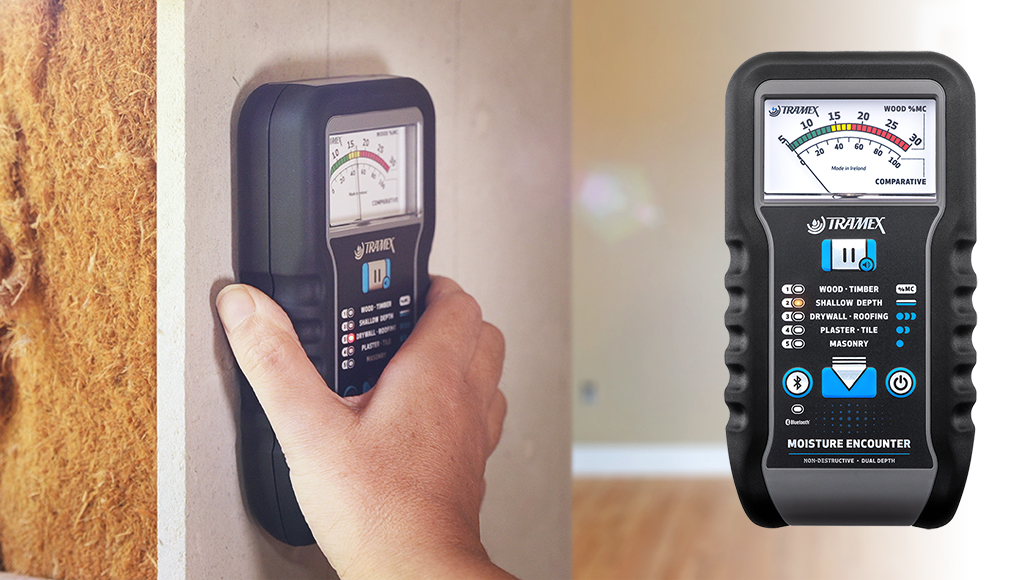Recognizing the Various Kinds Of Moisture Meters and Their Applications
Recognizing the Various Kinds Of Moisture Meters and Their Applications
Blog Article
The Ultimate Overview to Moisture Meters: A Comprehensive Introduction and Exactly How They Can Save You Cash
In the world of building upkeep, building, and various sectors, the value of accurately gauging dampness levels can not be overstated. Dampness meters function as essential devices in identifying and keeping an eye on moisture material in products, assisting in protecting against expensive problems and making sure the quality of items. Recognizing the nuances of various kinds of wetness meters, their applications, and the potential cost-saving benefits they provide can be a game-changer for companies and experts alike. Discovering just how these tools can not only simplify processes however also contribute to economic savings is a trip worth embarking on.
Sorts Of Moisture Meters
One typical type is the pin-type wetness meter, which measures the electric resistance in between two pins put into a material. Pinless moisture meters, on the various other hand, usage electromagnetic sensor plates to check a bigger location without causing damages to the product's surface area.

Infrared dampness meters gauge the thermal residential properties of a material to identify its dampness material non-invasively, making them helpful for applications where pin or pinless meters may not be suitable. Understanding the different kinds of dampness meters offered can assist sectors pick the most suitable device for their specific moisture measurement demands.

Advantages of Using Wetness Meters
Wetness meters supply important advantages in accurately keeping track of and assessing moisture degrees in varied materials and settings. One of the key advantages of utilizing moisture meters is the avoidance of possible damage triggered by excess moisture.
Furthermore, making use of dampness meters can result in enhanced power effectiveness. By identifying areas with high wetness degrees, such as leakages or poor insulation, changes can be made to enhance power conservation and reduce energy expenses. In agricultural setups, moisture meters play an essential duty in optimizing plant yields by making it possible for farmers to keep track of dirt wetness degrees and make educated watering choices. On the whole, the advantages of utilizing wetness meters span throughout different sectors, supplying affordable remedies and advertising better quality assurance techniques.
Just How to Choose the Right Wetness Meter
When choosing a dampness meter, it's important to ensure that the meter is ideal for the certain material you will be screening. Different materials have differing electrical homes that can affect dampness readings, so selecting a meter created for your product is important for accurate outcomes. By thoroughly reviewing these aspects, you can choose a moisture meter that meets your requirements and offers exact moisture dimensions for your jobs.
Correct Strategies for Dampness Meter Use

Price Financial Savings Via Dampness Meter Applications
How can the calculated usage of moisture meters lead to substantial cost financial savings across numerous markets? In the farming industry, dampness meters aid in determining the ideal time for harvesting plants, preventing excess or over-drying moisture that can influence the final item's quality.
In a similar way, in construction, dampness meters help stop costly damages by detecting moisture degrees in structure materials, such as timber or concrete, which can lead to structural concerns if not attended to without delay. By identifying issue areas beforehand, service providers can take rehabilitative measures to stay clear of comprehensive fixings or replacements, inevitably conserving money and time.
Moreover, in the food handling sector, moisture meters are necessary for monitoring product high quality and Clicking Here ensuring compliance with security guidelines. By properly measuring moisture content in foodstuff, makers can avoid perishing, preserve quality, and minimize waste, resulting in significant expense financial savings. In general, the strategic application of wetness meters is a useful financial investment that can cause significant price decreases and boosted effectiveness throughout different markets.
Final Thought
To conclude, wetness meters are useful tools for gauging and detecting dampness degrees in different materials. By using the right moisture meter and adhering to appropriate methods, users can successfully stop expensive damages caused by excess dampness. Spending in a high i loved this quality moisture meter can lead to substantial expense savings in the long run by recognizing prospective issues beforehand visit the site and making it possible for punctual removal. Inevitably, wetness meters are vital instruments for keeping the integrity and durability of structures and products.
Moisture meters serve as important devices in discovering and keeping track of moisture web content in materials, assisting in preventing expensive problems and guaranteeing the top quality of products. Infrared wetness meters measure the thermal residential or commercial properties of a product to establish its moisture material non-invasively, making them valuable for applications where pin or pinless meters may not be appropriate.Dampness meters use important benefits in properly checking and assessing moisture levels in varied products and environments. In agricultural settings, wetness meters play a critical role in optimizing crop yields by enabling farmers to keep track of soil wetness degrees and make notified watering choices.In verdict, dampness meters are beneficial tools for gauging and identifying dampness degrees in different products.
Report this page